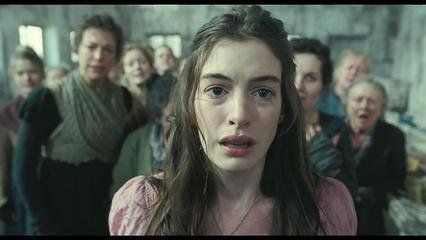What the life is for and what the life can be? Life is unpredictable, full of suffering and sorrow just like what the protagonist of the novel Jean Valjean has suffered. He is a working man suffering misery through his life. He is trapped in jail for 19 years and because the help of a priest, he restarts his life and saves others’life---Fantine and her daughter. And through his life he fights against Javert who is loyal to his duty. But in the end Javert dies in doubt for his faith in life while Jean dies with no regret.
Let me put this story in length. Jean is put into the river of endless torture for no reason. If we must find a reason for it, it could be the law and the clecheof the old convention. Jean Valjean, a hardworking man under the bottom of the dark society, strives to survive his life through famine and pestilence with great hope and sweat. However, the reality repays him a“good”crash. For a want of a load of bread, he steals one to fill his nephew’s poor hungry stomach, gaining a five-year sentence in the jail for his so-called crime. But unfortunately, the law is so cold and the jail is so dark and cruel. Also this man, is so hard like a rock in his heart, not confessing his deeds. Actually he does notjing wrong. Finally he barely invites a much longer sentence---19 years’service in the darkness. After 19 years’torture, he makes a fake file to set himself free from jail but in turn he continuously suffers from Javert search for him for life long. When comes out of the jail, he takes his first revenge as a real thief. The priest, Bishop Myriel, sheds the light of mercy and justice on him. He is so warm and generous in his eyes. He offers Jean with warm food after he is rejected by other masters. With no job to endeavor for, Jean has no choice but only to steal something from the man who gives him food in his need in order to survive and to take his revenge. But what the priest has done truly moves Jean. Jean is seized back by police and as long as Bishop Myriel utters a word, this poor man will be sent back to jail over again. But Myriel doesn’t do so. He presents these silver belongings to Jean and call him brother, which enlightens Jean in his soul. Exactly to say, it is Myriel who gives Jean rebirth. After this, in the name of the other man, Jean restarts his life. Because of his wisdom and hard work, he becomes a mayor. In his duty, he meets a working woman named Fantine. He thinks this woman is a live mirror, reflecting the life of himself. So his life is destined to be tied with this woman and her daughter, Cosette. I am not going to tell this story in detail. But I’d like to tell the end of the story. Jean raises this little girl up and saves her husband. Jean dies in peace in their wedding day with no regret and fear.
About this novel, I have too much to say although the life they live is nothing like that of ours. Everyone is independent in spirit since his separation from his mom’body. And it is since that moment that human beings begin his own quest for sorrow and joy. Jean, he is isolated from his family in feeling and distance. Thus he begin his own lonely life. He does nothing wrong. Just for want of a load of bread, or more exactly to say, for the hope to survive his life, he destroys his whole life. How ridiculous it is to hear this. Is it wrong to strive for life and meet one’s basic need for life? If this society can be a bit more equal in distribution of wealth and status, can such misery plays all over again? We know it’s the illness of the society.
About Fantine, I think I have much more echoes in my heart because of our sex---we are the same kind. Moreover, I myself, is something like a feminist. How can these fucking working women disclose Fantine’s secret? They are working in the same place, they are fighting for their own family, and they are living in the same way. But they are people of different kind. These old women, they are ignorant, and jealous of Fantine’s beauty and youth, which they no longer have. They want to break the ambiguous love between the commander and Fantine so they peer at Fantine’s scrip, finding a big hidden secret---her daughter. Having no way to support her daughter and being discarded by her lover, she sells her hair first, and then her teeth, and finally her chastity. She dies leaving her daughter alone. I can’t bear this. Why women must suffer this pain? They devotes their love to their beloved masculine men, their heroes, but what they gain from this? Only betray and scar in their tender heart! In that period, women don’t have such much right as today. Even thought they want to start a new era for themselves, they have no opportunity and the allowance of the law and convention.
Everyone is planning their own blueprint for life but they fail to some extent. A hidden revolution is on it’s way but it withers in the sharp contrast of power. In this novel Hugo gives a through and detailed description of the revolution. He’s full of the thought of Humanitarian. We know a writer writes something on the reflection of his own life experience. He lives in rich and comfortable life. How can he notice these miserable people’s sorrow?Witnessing the true story of a poor man, he constructs and composes this large and tremendous story. He intentionally makes it a masterpiece, drawing attention of people to the miserable ones.
Although nowadays this life no long exists, we should still give more care to these who are unable. They live in the the bottom of the society pyramid. They don’t get enough aid. It’s not their fault to be poor, to be in need of help, to be weak in power. There’s no absolute equality in this universe. So we must count on ourselves and the co-existence of our human beings. Let the world be a big family and let human beings be true kinsfolk thus we can live away from the miseries.
il����

